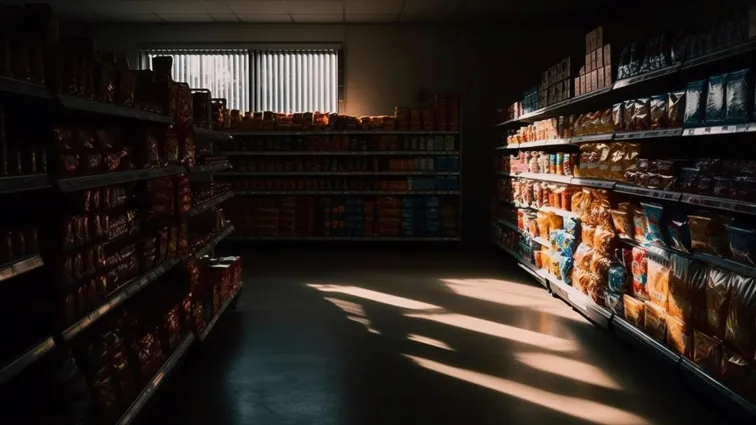The sale of food is currently a much-debated topic across society, at least when it comes to prices. This area is subject to significant control under the Act on Unfair Terms in Food Trade[1]. The Act contains almost 60 different unfair terms that affect not only prices. However, the interpretation of the Act is not straightforward. When interpretation is unclear, one usually refers to the decision-making practice of the courts or the competent administrative authority, i.e. the Ministry of Agriculture and Rural Development of the Slovak Republic. What does this decision-making practice look like?
A bit of judicial practice
The Unfair Terms in Food Trade Act (the Act) has already reached the highest level of judicial review. The Constitutional Court of the Slovak Republic (CC) has considered whether the Act is in line with the Slovak Constitution. In 2019, the Constitutional Court ruled on a motion proposed by a part of the members of the National Council of the Slovak Republic in its ruling PL. ÚS 12/2020-42.
In substance, the Constitutional Court dealt with two unfair practices: payments for a visit to the other party to a business relationship and the possibility of penalising an act or omission deviating from a fair course of business. Both provisions withstood the constitutionality test.
The payment for a visit to the other party was considered by the CC as economically irrational. The CC considered its provision as evidence of a weaker position of the party that is to provide the payment. As a result, according to the Constitutional Court, the control is justified.
In the case of a breach of the principles of fair course of business, the CC examined the certainty of the prohibition. The CC found that the prohibition of breach of the principles of fair course of business was sufficiently determinate. It is for the Ministry of Agriculture and Rural Development of the Slovak Republic (the Ministry) and the courts to further interpret this prohibition. However, we have not found any court judgments concerning the Act.
In the absence of judgments, what is the decision-making practice of the Ministry?
The Ministry does not publish its decisions. It only publishes annual reports in which it informs about the inspections carried out. Inspections may result in a finding of misconduct and referral to delict proceedings, or a finding of no misconduct and the termination of the inspection. The published annual reports for 2021 and 2022 show that the Ministry carried out 21 inspections in this period, identifying a problem in 12 cases.
In each case, the Ministry dealt with potential misconduct by a customer in relation to a particular supplier. Suppliers may also be guilty of misconduct under the Act; however, the Ministry has never investigated this. Where the Ministry did find any misconduct, it was related to only one unfair practice – the failure to pay the purchase price by the due date, the maximum length of which is determined by the Act.
Given that we were highly interested in the area concerned, this did not stop us and, in accordance with the Freedom of Information Act, we requested the decisions from the Ministry. However, the result was surprising.
Out of the 12 requested decisions with the identified problem, we received 10. In the other two cases, no decision had been issued by the date of our request. Out of the 10 decisions provided, the proceedings were stayed in 6 cases, 5 of which were stayed because the Act had been amended in favour of the parties to the proceedings. The Ministry was thus unable to impose a fine on them. In the remaining 4 cases, the Ministry imposed fines totalling only EUR 1,250.
What interesting conclusions were drawn from the Ministry’s decisions?
It is not enough for the Ministry to identify an unfair practice in order to impose a fine for a breach of the Act. The breaching party must also put the other party to the business relationship at a disadvantage by the unfair practice. As is clear from the Explanatory Memorandum to the Act, the idea behind the inclusion of disadvantages for the other party is to protect entities with weaker economic power and bargaining power.
We looked at how the Ministry applied this concept of disadvantage in the four cases in which it found a breach of the Act. According to the Ministry, if the purchase price is not paid when due, the disadvantage consists in the unauthorised dealing with the funds that should have been paid to the other party. This was considered by the Ministry as an automatic problem without further examination of the economic and bargaining position of the disadvantaged party.
In fact, in these cases, the situation could not have even been justified by the entity’s own insolvency or the adverse consequences associated with the COVID-19 pandemic. In one of the cases examined, the “disadvantaged” supplier even argued that it had not suffered any damage and did not agree with the imposition of the fine. However, similar statements were only reflected by the Ministry in the amount of the fine imposed, not in the unlawfulness of the conduct itself.
In one of the cases in which the proceedings were stayed (in relation to the statistics above in the remaining one), the Ministry found that the supplier had not been put at a disadvantage. The basis for this conclusion was the supplier’s statement that no damage had occurred, coupled with the fact that the delay in payment was only one day in each case.
In interpreting the concept of disadvantage, the Ministry has so far followed an inconsistent approach. Even though the Act does not in itself recognise justifying reasons, the Ministry should, in our view, not only examine but also reflect the mutual relation between the parties and their market positions. If the disadvantaged party states that the conduct had no adverse effect on it and that there was no significant impairment of even private interests, it is in our view illogical to find violation of the public interest at which the control under the Act is intended to be directed.
What does it mean?
If the standard theory is grey but the tree of life is green, in the case of Act the tree is grey, too. In Slovakia, the Act is applied to all supplier-customer relationships in the food retail sector. As a result, is stricter than the EU regulation (EU Directive 2019/633) on which the Act is based and which allows to limit the application of this regulation to the relationships of entities reaching certain turnover levels, which some countries (such as the Czech Republic) also apply.
Nevertheless, in the last two years, the Ministry has dealt with only 12 cases, with only 4 cases resulting in the imposition of a fine. At the same time, despite the existence of almost 60 different unfair practices, the Ministry has dealt with only one unfair practice in administrative proceedings.
In our view, there are two explanations for these data. Either: the Act is a widely accepted regulation respected by all relevant players. This is certainly a desirable state of affairs from the perspective of both the state and entrepreneurs who must comply with the Act. Or: the enforcement of the Act in Slovakia is insufficient. For entrepreneurs, this option is also favourable, as the very necessity of regulating relations in the food industry may be a matter of debate. But it is certainly not satisfactory from the perspective of the state that introduced the regulation, because unenforced regulation is in fact toothless.
All we can say with certainty in the present situation is that we will continue to bring you such an overview of the activities of the Ministry and interesting facts about unfair practices in the future.
- [1] – No. 91/2019 Z. z.









